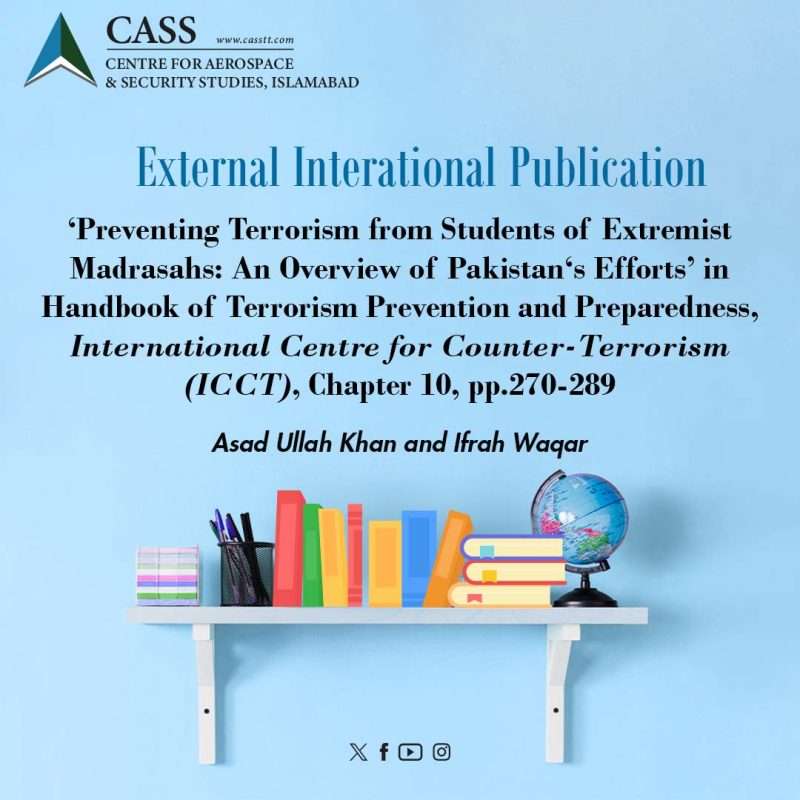‘Preventing Terrorism from Students of Extremist Madrasahs: An Overview of Pakistan‘s Efforts’ in Handbook of Terrorism Prevention and Preparedness, International Centre for Counter-Terrorism (ICCT), Chapter 10, pp.270-289
Asad Ullah Khan and Ifrah Waqar
Historically, madrasahs as religious teaching institutions have held a position of esteem and significance in the Indian subcontinent. Since Pakistan’s independence, madrasahs have played a significant role in not only providing religious education, but also offering free board and lodging to many of the country’s poorest children. Overtime, their numbers have grown, owing to a number of national and international factors. After 9/11, a debate on regulating madrasahs and their curriculum gained strength, as links connecting extremist and terrorist elements operating in the country with these institutions were found. A number of government measures to introduce reforms and regulate madrasahs in Pakistan have been announced to date, but have mostly been unsuccessful – largely due to a lack of political will. This chapter examines the evolution, landscape, and features of the current madrasahs system and efforts to streamline them, the obstacles in their implementation, along with an overview and evaluation of Pakistan’s counterterrorism strategies related to madrasahs and, to a lesser extent, mosque reforms. The social setting of madrasahs and their role in education, politics, radicalization and terrorism is also discussed in some detail.





